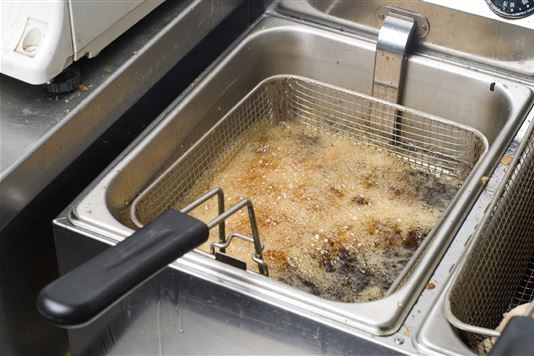USA overtakes UK on trans fat safety regulations

US regulator moves to ban trans fats within the food supply. Does our government need to follow suit?
Partially hydrogenated oils (PHOs), the major source of trans fats, are now no longer “generally recognised as safe” by the US Food and Drug Administration (FDA) and will be banned from use within the food supply.
The FDA’s decision to reclassify PHOs and remove them from the food chain will save the lives of thousands every year, said the FDA’s Acting Commissioner Stephen Ostroff. He claimed the move would reduce the number of fatal heart attacks and the proportion of the population suffering from coronary heart disease.
A compliance period of three years will give US food companies time to remove PHOs from their processes before the rules come into force.
What are trans fats?
Trans fats are fatty acids that raise the level of cholesterol, particularly the ‘bad’ LDL cholesterol, in the blood. All are potentially bad for you, and they can be found as naturally occurring fatty acids in cheese and beef, among other products. So long as you don’t go overboard, you’ll be fine.
However, artificial trans fats are produced when vegetable oils are hydrogenated. This process turns them into solid or semi-solid lumps of fat, while partial hydrogenation is also used to improve the shelf life of some foods.
Margarines have come under fire in the past as they are made with hydrogenated vegetable oils, but the reformulation of many margarines during the 1980s made them "virtually free of trans fats", the British Dietetic Association says.
Deep-fried foods may also contain a lot of trans fats, as they are also produced when vegetable oils are heated to high temperatures.
Why has the UK not banned them?
NICE (National Institute for Health and Clinical Excellence) guidelines on the prevention of cardiovascular disease call for the use of industrially-produced trans fatty acids for human consumption to be eliminated.
The guidelines also encourage the use of polyunsaturated or monounsaturated fatty acids to be used in place of trans fat products.
The National Diet and Nutrition Survey results from 2008 to 2012 stated that the mean intake of trans fats supplied 0.6-0.7% of food energy among all age and sex groups.
While that’s a very small proportion of our energy intake, the World Health Organisation has branded industrially produced trans fats “particularly toxic”, saying that raising LDL and lowering HDL (or 'good' cholesterol) leads to a substantial increase the risk of coronary heart disease and stroke.
A Department for Health spokesperson said that “we have significantly reduced levels of artificial trans fats in foods by working with industry.”
“The latest data show that the daily intake of trans fats in the UK was below 1 percent of food energy, in line with expert advice. Tackling obesity and improving people's health through good nutrition continues to be a major priority for this Government.”
But an outright ban doesn't seem to be on the cards here.
Has the problem worked itself out in the UK, as we are generally eating below the recommended limit of trans fats? Or do we need Government intervention and an outright ban? Let us know your thoughts in the Comments below.
You might also like:
Should we have shocking warning images on fatty foods?
Comments
Do you want to comment on this article? You need to be signed in for this feature